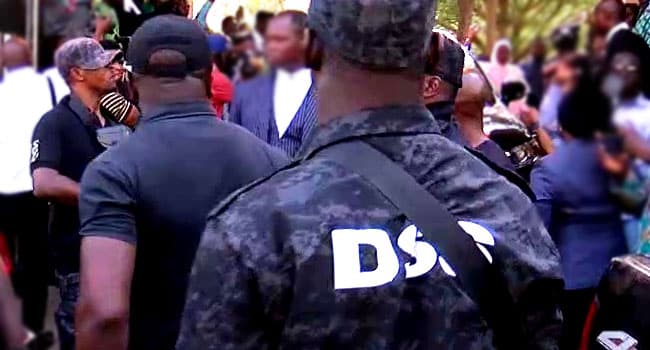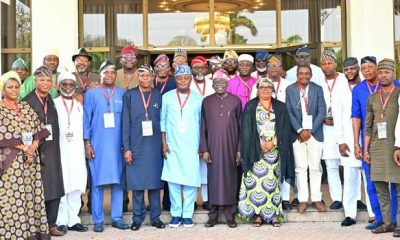Nigeria News
Ex-Deputy DG Of DSS Reveals Why Operatives Were At Lagos Assembly

A former Assistant Deputy Director-General of the Department of State Services (DSS), Mohammed Ngoshe, has provided insight into the DSS operation at the Lagos State House of Assembly.
Speaking on Channels Television’s Politics Today on Friday, Ngoshe confirmed that the House of Assembly invited the DSS due to anticipated violence linked to the ongoing leadership crisis.
“What played out in Lagos had a build-up. And all this build-up was covered by the State Security Service. At the point that the situation was almost getting out of hand, there was a situation to save,” Ngoshe explained.
DSS Acted To Prevent Crisis
According to Ngoshe, intelligence suggested a high likelihood of unrest, prompting the DSS to intervene before events escalated.
“If you do not stop that thing from happening, it becomes useless. So the DSS did a lot of undercover activities. There were a lot of happenings, a lot of goings on that took place before the DSS went into the House of Assembly in Lagos,” he said.
Naija News reports that Ngoshe further emphasized that security agencies do not need to wait for explicit orders to act in situations that pose risks to lives, properties, and national institutions.
“If you’re working as a security agency and you see trouble breaking out, the probability of loss of lives, damage to property is very high. Why do you need somebody to come and tell you that you should go and act when you know that is your responsibility?” he questioned.
He stressed that securing government institutions, including the legislature, is a primary duty of the DSS and other security forces.
“The House of Assembly of a state is a political institution, an arm of government. It is one of the cardinal responsibilities of the State Security Service to protect that institution and make sure it works where it is threatened,” he stated.
Ngoshe highlighted the importance of timeliness in security operations, warning that any delay could result in a failure to prevent an incident.
“In security operations, timelines are very key, because any delay to take action on a particular intelligence might lead to that action being carried out. And the moment it is carried out, there is a failure,” he concluded.










